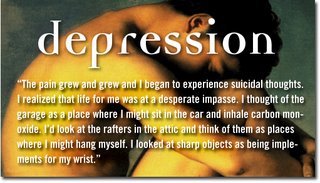Young and Restless
Hi guys..,
Its been a long days... weeks... even months... wherein I have not updated the my blog.
I came across a this interesting article in one of the forwarded mails...
Preparing for a string of competitive exams, making time for friends, looking good, keeping fit, making big-time choices, knowing the intricacies of downloading music on to your IPod, presenting a confident image...truly, the list is endless. These are some of the million challenges strewn across the path of a young person today. If you thought it is easy to be part of the new age generation, be informed, it's not!
Having to juggle with multiple things, the mantra being "multi-task", youngsters have a tough time satisfying their parents, friends, colleagues and most importantly, themselves.
''It is raining competition everywhere. Be it the college, workplace and also your home, it's a battle having to live up to other people's expectations,'' complains student. A sad and telling statement about the times we live in.
Most of the challenges a young person faces today seem to however circle around academic and career choices.
''Parents build their dreams around us, sometimes, I want them to just let me be. But, at the same time I don't feel like letting them down,'' says Most students seem trapped in this paradox.
Parents are busy building agendas and career plans for their children, even as the latter valiantly strive to match up to their expectations.
Take the case of Chennai based. She had always wanted to be a model but her parents were dead against it. A software engineer, she points out, ''I made my parents happy but I have the most unhappiest professional life in the process.''
Coming a close second to professional pressure seems to be the effort of keeping up with friends. It has become all important to "fit in" with your group of friends.
''I study with really hip girls and boys. You can be sure they won't even look at you leave alone talk to you,'' says a high-school student from Bangalore.
''The worst thing is being branded as a lesbian if you remain single for long,'' she adds woefully. The pressure to have a boyfriend is big.
''It's a criminal offense to be single,'' also laments, a management student. ''The boys just look down on me if I don't hangout with a livewire of a girl,'' he says. Once you get into a relationship, you have to deal with the baggage that comes with it. But, are young people mature enough to handle relationships?
Like, a science student in a Chennai based women's college reveals, ''I am so obsessed with my guy that every time I have a fight with him, I cut myself.'' This might be an extreme situation but real.
On top of all this, thanks to beauty pageants and Sushmita Sen and Aiswarya Rai, looking like someone stepping out of an advertisement is so crucial. For example, ''I spend a lot of time in a salon, pampering myself with beauty treatments. I also indulge in serious shopping to always look my best.''
As the pressures pile up, there are many young people hiding their anxieties, insecurities and their lack of self-confidence. Their judgements then get clouded and their academic performance suffers.
In extreme cases, such pressures lead to deviant behaviour like consuming drugs and pills.
Life would be a lot different for young people if parents paid attention to their choices without applying pressure, ''We are not asking our parents to completely absolve their responsibility, all we want is to decide for ourselves.''
The role of friends and siblings are also important. They need to lend support and positive advice.
However, at the end of the day, if youngsters can believe in themselves and rely on their own abilities to handle life, they can perform better no matter the pressure.
A sense of self or self-worth can win many a battle for young people. That's the most precious gift a parent can give their child, to believe in onself.
Happy reading....








